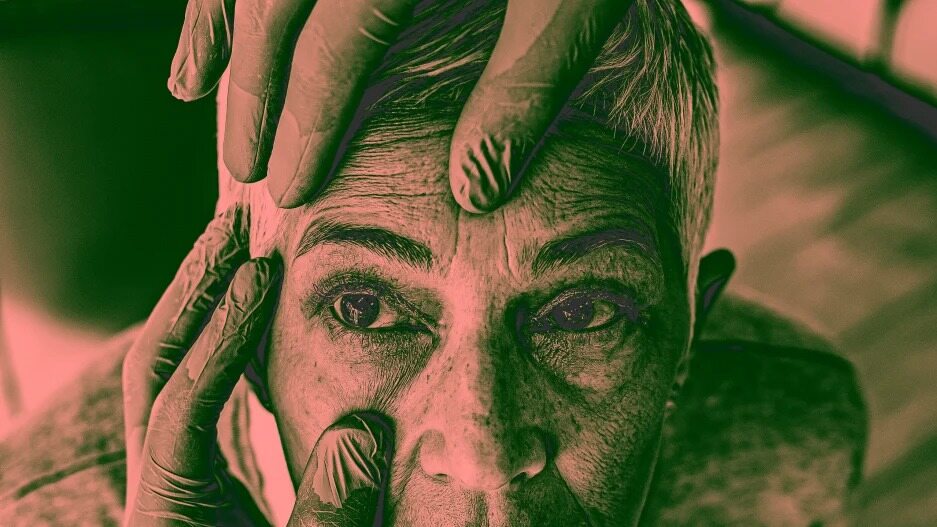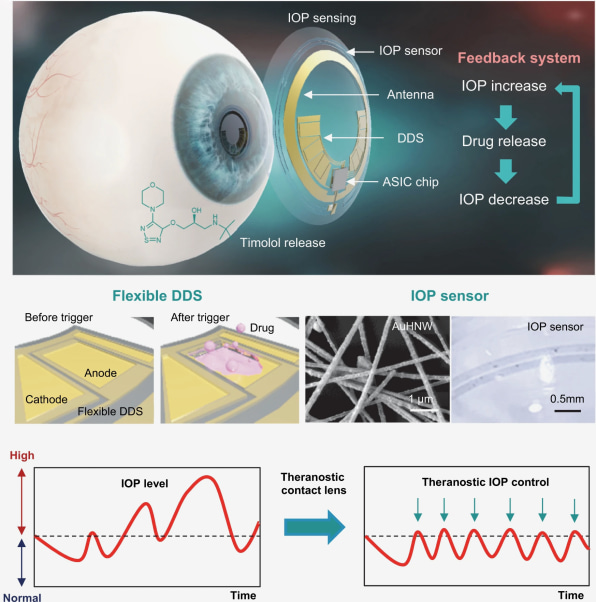- | 9:15 am
This smart contact lens could treat glaucoma
A university in South Korea claims its invention could revolutionize compliance for glaucoma patients.

Across the world, some 80 million people suffer from glaucoma, a number that’s expected to swell to 111 million by 2040. Today, an estimated three million have been diagnosed in the United States.
But common as it may be, glaucoma is a formidable affliction. It takes root with an accumulation of fluid in the eyes, forming a bubble of extra pressure that slowly damages the optical nerve. At first touch, symptoms can be imperceptible—perhaps a bit of blurriness, or a slight weakening of your peripheral sight. Over time, the angle through which your pupils can peer might narrow further and further—until one day, you might wake up with your field of vision completely zeroed out. No cure exists.
Glaucoma can be treated by lowering the extra pressure in the eyes, most often with prescription eyedrops. And now POSTECH—Pohang University of Science and Technology in South Korea—claims to have engineered a way to make the treatment more futuristic, with a smart contact lens that automatically delivers doses of medication over time, straight onto the eyeballs.

The contact lens, developed by a team from POSTECH’s department of materials science and engineering, is fitted with hollow nanowires made of gold, which serve as sensors that constantly track intraocular pressure (IOP). But unlike other contact-lens-based sensors that have cracked the pharmaceutical market, such as Triggerfish, POSTECH’s invention can also administer the appropriate treatment in response to the diagnostic data. It’s powered by an integrated circuit chip, which allows the lens to release amounts of a drug on demand.
The team’s results were published in Nature Communications in November. But notably, the smart contact lens seems yet to be tested on human eyes. POSTECH’s team did achieve success in vivo with contact-lens-wearing laboratory rabbits, whose scientifically induced glaucoma was clocked by the sensors, and drops secreted through the lens. (Whether the bunnies were comfortable at all, or whether the lens was anything like human contact lenses that are marketed under names like “Oasys” and “HydraGlyde,” is unclear.)
Similarly to diabetes, glaucoma is a treatable disease that patients must manage for life—but also like diabetes, the greatest uphill battle today is adherence. Many patients struggle to remember to check IOP levels, or simply find the monitoring too much of a hassle.
“We hope the early commercialization of the newly developed theranostic smart contact lens for diagnosing and treating glaucoma intraocular pressure [can] provide glaucoma patients’ compliance,” said Sei Kwang Hahn, a POSTECH professor and the study’s lead.







































